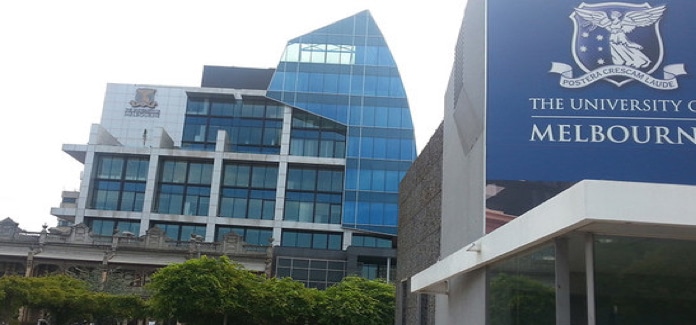
Scoring highly amongst world’s top schools with MBA programs designed to nurture the leadership skills of entrepreneurs, Melbourne Business School and AGSM @ UNSW Business School were the only Australian schools to make the list.
Melbourne Business School ranked 42nd while the AGSM followed at 43rd. It was the first time the AGSM had ever ranked in the top 50 as a globally-recognised school for fostering entrepreneurship.
“Ranking in the world’s top 50 MBAs for Entrepreneurship is recognition of our commitment to developing a new generation of leaders,” UNSW Business School Deputy Dean and AGSM Director Nick Wailes said.
“One of the hallmarks of a modern, contemporary MBA is the flexibility it provides for students to explore their leadership potential.”
The ranking was based on survey data collected from the MBA class of 2013 as part of the FT 2017 Global MBA ranking. Schools were ranked based on the amount of MBA students who had started their own business after graduating and whether or not those businesses were still operating. The rankings were also determined by the schools’ gender diversity and if the alumni had been successful enough in their entrepreneurial journeys to draw a primary income from their business.
According to the Financial Times, 29% of students who studied the AGSM went on to start their own business, while 45% of those were still operating at the time of the ranking’s release. Of those continuing business owners, 20% were able to generate their main source of income.
Having previously ranked with the Financial Times as a top MBA program for entrepreneurs, Melbourne Business School’s statistics were already on the board but saw improvement in 2018. The amount of students who started a business grew two points to 19%, and 83% of those were still operating, which was a four-point increase.
Rising 24 points from previous years, 60% of MBA graduates from Melbourne Business School had found enough entrepreneurial success to use their businesses as a main source of income.
Melbourne Business School Associate Professor of Strategic Management Kwanghui Lim said the school had worked hard to make sure its MBA program equipped students with the skills and resilience they needed to succeed as founders.
“Innovation is important to our School because organisations require more skills from our graduates. These skills can help balance existing needs with ways to become more responsive to market and social changes,” he said.
“This involves developing leadership in students to craft new strategies, develop original approaches to markets and re-orientate culture, people and financials.”
According to a StartupAUS Crossroads report earlier this year, Australian entrepreneurs have the potential to contribute as much as $170 billion to Australia’s economy by 2020, with $1.32 billion raised in Venture Capital in 2017.
Stanford Graduate School of Business ranked first on the Financial Times’ list, followed by Babson College and Dartmouth College.









